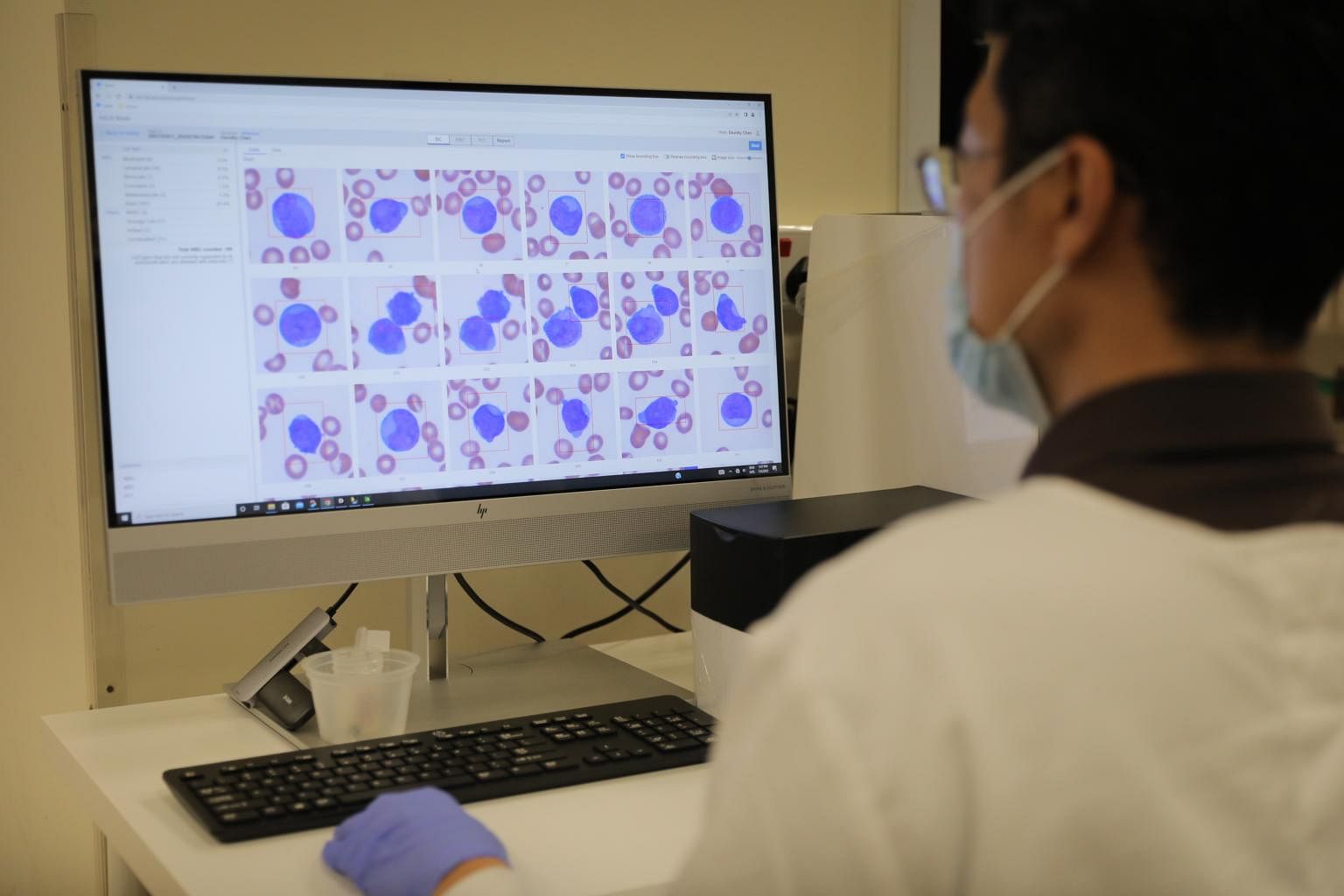AI tool being tested for faster, more accurate diagnosis of diseases

An AI-powered software dubbed Blade can cut the time needed to analyse blood for some diseases by half. ST PHOTO: ONG WEE JIN
SINGAPORE - Diagnosing leukaemia as well as diseases such as malaria may soon be faster and more accurate with the use of artificial intelligence (AI).
An AI-powered software dubbed Blade - developed by Tan Tock Seng Hospital (TTSH) and Taiwanese tech firm Asus - can cut the time needed to analyse blood for these diseases by half, allowing for earlier clinical intervention for patients.
The process currently requires a laboratory technologist to examine a patient's blood, which is placed on a piece of film under a microscope, and perform a manual cell count.
Those blood films with abnormal features or unclear diagnosis are sent to a reference laboratory or a haematologist for review.
This can leave the technologists fatigued, possibly leading to a greater chance of error, said TTSH haematology department consultant Eugene Fan.
He told reporters on Wednesday (July 6) that the TTSH haematology lab - which operates 24hours a day, seven days a week - handles between 300 and 400 such blood fi lms a day.
Blade allows for the procedure to be automated, enabling a technologist to load multiple blood films into a scanner that converts them into digital images.
The AI analyses the films and flags critical ones, such as cases of leukaemia.
Lab technologists need only review the scans and correct any misclassified cases, said Dr Fan, who is also a principal investigator in the eight-member team studying the use of Blade.
He compares the identification of critical cases by Blade to tagging people on Facebook, noting this is made possible by lab technologists painstakingly labelling individual cells over the past three years.
The software was developed using a data set of 337,700 digital images of peripheral blood cells from the National Healthcare Group (NHG), which oversees TTSH.
Differential blood counts to check white blood cell levels - which indicate the presence of infection and disease - are currently 91.4 per cent accurate, Asus and TTSH said in a media release.
Before the partnership with Asus, funding for the project came from various sources, includingEnterprise Singapore and an award from the National Medical Research Council.
Blade is currently being evaluated at TTSH and other sites, with plans for it to gain regulatory approval in the next few years.
The team aims to test Blade in a community setting, with NHG's Hougang Polyclinic - which has its own laboratory where blood films are examined - expected to get the software this month.
For all those still in the decision-making progress: Feel welcomed and invited to watch how easy and smooth working can be with our MoticEasyScan Systems!

The AI analyses blood films and flags critical ones, such as cases of leukaemia. ST PHOTO: ONG WEE JIN
Asus and TTSH are also looking at developing similar AI-based solutions in the fields of pathology, cytology and microbiology. On Thursday, the two formalised their collaboration by signing a three-year memorandum of understanding.
Other projects in the works include those targeting breast and colon cancer detection.
We believe that computer science can help a lot to improve healthcare quality," said Asus chief technology officer and corporate vice-president Huang Tai-yi, noting that the company had already deployed its smart medical solutions at 20 hospitals in its native Taiwan.
Associate Professor Tan Cher Heng, assistant chairman of the medical board for clinical research and innovation at TTSH, said the adoption of technology such as AI will allow the hospital to reinvent its practice and improve care for the community.